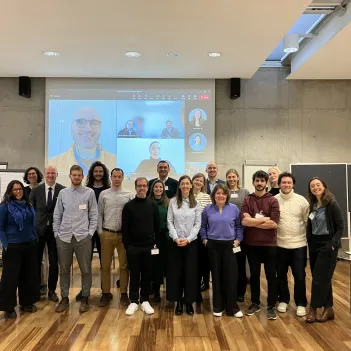ECLECTIC
Enabling CircuLar Economy aCTIon plans for small and medium-sized Cities

- Category
- Project
- Call
- DUT Call 2022
- Duration
- –
- Project coordinator
- Accademia Europea di Bolzano
ECLECTIC addresses the challenge of helping small and medium-sized cities in the EU transition toward circular and climate-neutral systems. These cities often lack the tools, data, and frameworks needed to design and implement effective circular economy (CE) strategies. The project addresses this gap by supporting cities and regions in designing tailored CE action plans that enhance resource efficiency and minimize environmental impact. A key focus is on understanding urban metabolism and material flows to inform decisions, while also ensuring that marginalized social groups are not left behind in the transition. By integrating justice into CE planning, ECLECTIC seeks to foster inclusive and equitable circular transition. The central research question it addresses is: How can small and medium-sized EU cities effectively design, implement, and monitor circular economy action plans that contribute to climate neutrality, sustainability, and social equity?
ECLECTIC uses a research-oriented approach combining quantitative analysis of urban metabolism with qualitative research on social vulnerability to support local authorities in designing, implementing and monitoring circular economy (CE) actions plans. Using material flow analysis (MFA) and life cycle assessment (LCA), ECLECTIC models resource flows and associated environmental impacts in four city-regions: Bolzano (Itay), Coimbra (Portugal), Jonava (Lithuania) and Gothenburg (Sweden). In each region, City-Region Living Labs (CiRLabs) are operated to co-select CE strategies aligned with local needs and climate neutrality goals. The project assess the potential of the co-selected CE strategies to environmental impact reduction and develops a KPI-based monitoring framework to track implementation of CE action plants. ECLECTIC also provides policy recommendations focused on social justice and inclusion, ensuring CE actions consider the needs of vulnerable and marginalized groups across Europe.
ECLECTIC will deliver a toolkit for local authorities to support the design, implementation and monitoring of CE actions plans. The toolkit will integrate project results, metrics, learnings and recommendations derived from research in the 4 CiRLabs to develop CE actions plans, considering city or region-specific challenges, goals and opportunities. ECLECTIC’s expected impact is to enable sustainable transition pathways to CE by equipping policymakers with knowledge, guidance and tools on CE. At a broader level, ECLECTIC aims to increase evidence and awareness on CE by analyzing circular transitions according to multiple perspectives (economic, environmental and social), contributing to multidisciplinary research on CE. To this end, ECLECTIC organizes joint events and webinar with other projects across European cities and regions, promoting shared learning and comparison of methods and results to accelerate progress towards a just and sustainable circular economy in the EU.
Italy
Lithuania
Portugal
Sweden
Chalmers Tekniska Högskola AB, City of Gothenburg, Comunidade Intermunicipal da Regiao de Coimbra, Comunidade Intermunicipal Da Regiao de Coimbra, Instituto Politecnico De Coimbra, Kauno Technologijos Universitetas, Universidade de Coimbra
Jonavos Rajono Savivaldybes Administracija, Provincia Autonoma di Bolzano
Links
Contact
Chiara Pellegrini
chiara.pellegrini@eurac.edu